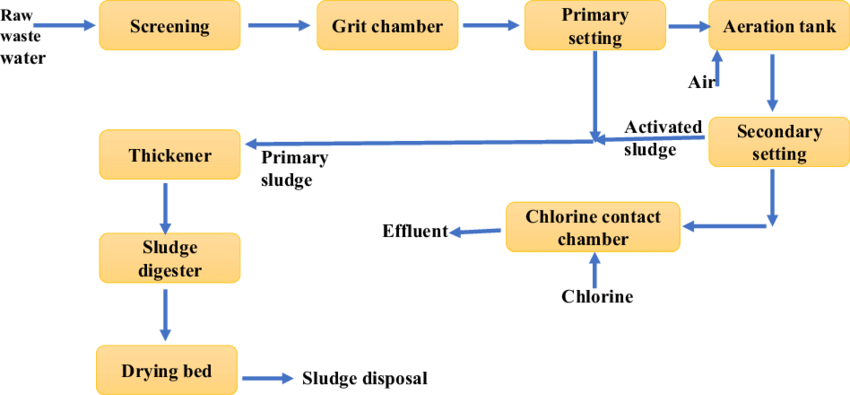Fascination About Reclaim Waste
Table of ContentsThe 8-Second Trick For Reclaim WasteThe Single Strategy To Use For Reclaim WasteThe Basic Principles Of Reclaim Waste The 9-Minute Rule for Reclaim WasteReclaim Waste Fundamentals Explained
Explore the types, occurrences, and forms of liquid waste. Domestic sewage waste describes the waste and items from a domestic septic system. This kind of waste is created by humans in residences, institutions, and other structures. This only consists of septic tanks that have a drain area. The proper management and disposal of domestic sewage waste call for fluid waste to be moved to a sewer therapy plant where the proper methods and tools are put on purify and throw away waste.
Business waste frequently consists of possible risks, such as combustible materials or a blend of liquid and strong waste products, and calls for an extra sophisticated and detailed disposal process. The disposal of industrial waste commonly involves the filtering of waste prior to transport to make certain safe and proper disposal. Industrial waste is produced from results and drainage of commercial procedures and manufacturing.
This sort of waste can not use the same sewage management transportation or procedures as septic or business liquids. The hazardous waste administration process requires the evaluation and testing of liquid waste before it undergoes the disposal process (liquid waste disposal). Runoff waste is the fluid waste that originates from overflow and excess stormwater in extremely inhabited locations or cities
Drainage waste can create contamination and flooding if not taken care of properly. Making sure correct waste administration can prevent calamities and minimize environmental damage.
4 Simple Techniques For Reclaim Waste
Call PROS Solutions today to learn more about our waste monitoring and disposal services and the appropriate means to take care of the fluid waste you create.
(https://hub.docker.com/u/reclaimwaste1?_gl=1*1980ev1*_ga*MTgwOTc3Nzc2OS4xNzMxMzI1Mzkw*_ga_XJWPQMJYHQ*MTczMTMyNTM5MC4xLjEuMTczMTMyNTcwOC4xMC4wLjA.)Do you know what takes place to your water when you pull the plug, purge the bathroom or drain the cleaning device? No? Well, it deserves understanding. This so-called 'wastewater' is not just a crucial resource however, after treatment, will certainly be released to our land, waterways or the ocean. Made use of water from toilets, showers, bathrooms, kitchen area sinks, washings and industrial procedures is known as wastewater.

water made use of to cool equipment or tidy plant and equipment). Stormwater, a form of wastewater, is overflow that moves from agricultural and metropolitan locations such as roof coverings, parks, gardens, roads, courses and gutters right into stormwater drains pipes, after rain. Stormwater streams neglected straight to local creeks or rivers, ultimately getting to the sea.
The Main Principles Of Reclaim Waste
In Queensland, the majority of wastewater is treated at sewage treatment plants. Wastewater is transferred from residential or commercial websites with a system of sewage systems and pump terminals, called sewage reticulation, to a sewer therapy plant. City governments construct, keep and run most sewer therapy plants. Operators are accredited under the Environmental Protection Act 1994 to discharge cured wastewater at an appropriate environmental standard into rivers.
The Division of Natural Resources suggests city governments regarding handling, operating and keeping sewage systems and treatment plants. In unsewered areas, local federal governments might need homeowners to install specific or family sewage treatment systems to deal with residential wastewater from toilets, kitchens, bathrooms and washings. The Department of Natural Resources authorizes using household systems when they are proven to be reliable.
A lot of stormwater receives no therapy. In some new subdivisions, therapy of some stormwater to eliminate litter, sand and crushed rock has started utilizing gross pollutant catches. Wastewater treatment takes place in four phases: Eliminates strong matter. Bigger solids, such as plastics and other things incorrectly released to drains, are removed when wastewater is travelled through screens.
Wastewater after that flows into huge tanks where solids resolve and are removed as sludge. Oil and residue are skimmed from the surface. Makes use of small living organisms recognizes as click this micro-organisms to break down and get rid of staying liquified wastes and great particles. Micro-organisms and wastes are included in the sludge. Gets rid of nitrogen and phosphorus nutrients that could trigger algal blossoms in our waterways and endanger marine life.
Top Guidelines Of Reclaim Waste
Nutrient removal is not offered at all sewage therapy plants due to the fact that it calls for costly specialist equipment. Clear fluid effluent generated after therapy may still contain disease-causing micro-organisms - liquid waste disposal.

This typically means wastewater has actually to be dealt with or pollutants removed prior to it can be released to waterways. The majority of wastewater moves into the sewage system. Under the Act, city governments provide approvals and permits for ecologically relevant tasks (ERAs) entailing wastewater releases that might have a neighborhood effect. The department provides approvals and permits to Ages entailing wastewater releases that might have a local or statewide effect.
What Does Reclaim Waste Mean?
Tracking supplies accurate info about water high quality and can verify that licence conditions are being met. The info acquired through tracking supplies the basis for making water high quality decisions.